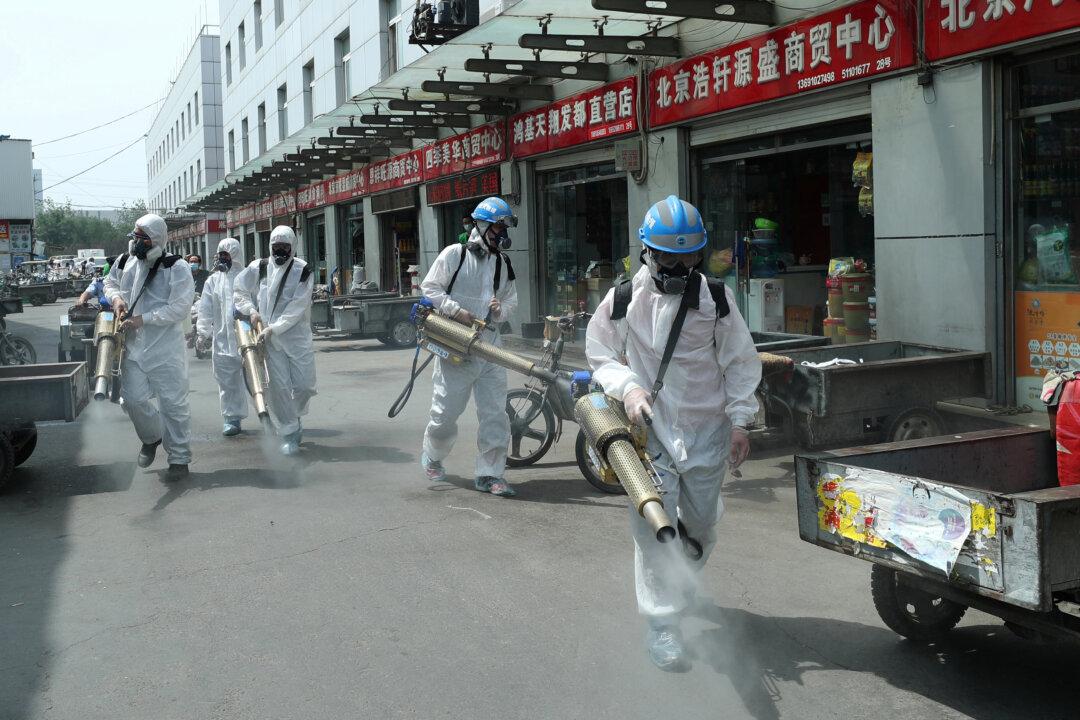A recent resurgence of the CCP virus in China’s capital has forced top officials to warn that a worse situation is yet to come.
Authorities have sealed off all neighborhood compounds as of June 17, after dozens of cases emerged from the sprawling Xinfadi food market. Beijing is now scrambling to control movements in and out of the city, halting trains and canceling nearly 70 percent of flights at its two international airports. All school classes have been suspended.





